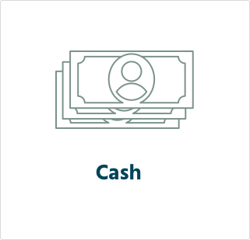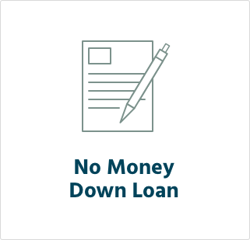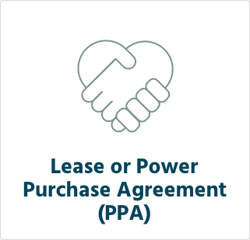With more homeowners installing solar energy systems and solar energy storage systems every day, it’s safe to assume that for most people, the cost is not an obstacle to obtaining the benefits of residential renewable energy.
But if you haven’t taken the solar plunge yourself, you might have questions about your options for covering the cost. The good news is, there are a number of options, some of which require no money down on your part. And in virtually all cases, you benefit from electricity that costs less per kilowatt hour (kWh) than the electricity you currently purchase from the utility company.
The Big Picture
As you’ve probably heard from friends and neighbors, the total cost of solar energy and solar energy storage is reduced by a variety of government and utility incentive programs. These include the federal Investment Tax Credit for solar energy and energy storage systems (which currently pays you back 26 percent of the system cost), and California’s Self-Generation Incentive Program (SGIP) rebate for energy storage systems.
To pay for your project, homeowners have the following options:
- Cash
- Loan, many with no money down
- Lease or Power Purchase Agreement (PPA)
Please note that regardless of how you pay for your system, you should enjoy significant savings on your electric bills when you replace the utility’s expensive, fossil-fueled electricity with your own clean solar energy.
Here’s more detail on each payment method.
 Cash Out of Pocket
Cash Out of Pocket
For those who have savings, paying cash for a solar energy system and/or a solar energy storage system provides the greatest financial value to the homeowner. This makes sense. If you’re using someone else’s money, such as the bank’s, they will need some compensation for the role they play in financing your project. But if you are the sole source of your project’s funds, those additional costs go away and you reap the greatest financial reward.
Solar is such a safe investment with practically guaranteed results that some financial consultants actively advise their personal investment clients to go solar! They recognize the incredible benefit to you and your own family from predictable and stable cash flow year after year.
 Bank Loan Financing
Bank Loan Financing
Some homeowners don’t have the cash to cover the full price tag of a solar or energy storage system, or maybe you simply want to preserve that cash for other projects or upcoming expenses. You can do extremely well with a bank loan in that case.
Citadel Roofing & Solar is more than a solar company; we have partnerships with many banks and lending agencies that offer loans to cover the upfront cost of residential solar and energy storage systems. We can help you identify options you may qualify for and assist with your application to one of our financing partners. Or you can arrange a loan directly with your own local bank.
There are options for most customers, regardless of credit ratings. Some loans do not require a down payment. Many have very competitive interest rates with some as low as 2.99 percent. Loan periods range from five to 20 years.
Loan types commonly used to pay for solar energy systems and solar energy storage systems include:
- Loans designed specifically for solar
- Home equity lines of credit
- Home improvement loans
- Mortgages (sometimes through refinancing)
- PACE (property assessed clean energy) loans
Regardless of the terms of your loan, you own the system and therefore benefit from 100% of the electricity savings, net metering (which provides “credit” for extra solar energy you generate and send into the grid for others to use) and the federal Investment Tax Credit, just as if you paid cash.
 Leases & Power Purchase Agreements
Leases & Power Purchase Agreements
Like some of the loan options, lease and Power Purchase Agreement (PPA) financing options also enable homeowners to install solar, with or without energy storage, at no upfront cost.
With the PPA, a third party owns the solar energy system and the homeowner enters a long-term (often 25-year) agreement to purchase the power that the system produces, which varies by month. Leases are similar but instead of buying the electricity produced, you lease and make payments of a pre-set amount on the equipment, and the company guarantees that the equipment will produce a certain amount of power. PPAs and leases are optimal for homeowners who don’t pay enough taxes to benefit from the Investment Tax Credit. This is often the case with retirees on fixed incomes.
These options are also attractive in the sense that someone else is responsible for maintaining the system over time. Of course, the return on investment is lower than when you pay cash or use a loan, but you still benefit from reduced electric bills.
Choosing Your Best Option
Citadel can walk you through the pros and cons of each option and help you identify and secure the best financing method for your family’s situation, whether you’re installing solar energy alone, energy storage alone, or both systems together. We are “financing agnostic” in that we don’t benefit more or less based on which financing method you choose.
Our only goal is to help you find your best option so you can enjoy the savings and related lifestyle benefits that come with solar and energy storage.


